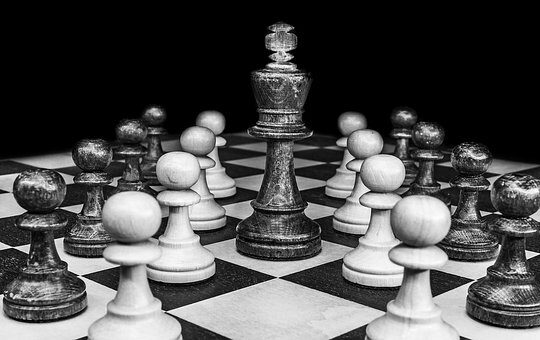Three Pillars of Public Leadership
Having spent the last 25 years of my professional life studying and teaching on leadership and governance, I have come to the conclusion that great Nations are built on three key pillars: Justice, Righteousness and Equity.
Justice is the foundation upon which anything society must be established and nurtured if it’s to remain relevant over a long time. Without justice, there can be no peace; without peace, development efforts cannot be sustainable. Justice is about making sure that anyone who does wrong is punished in accordance with laws of the land; and those that do good are recognized for being law-abiding. Justice is also about giving everyone their legitimate share of what they ought to have.
Righteousness is about doing what is right, irrespective of who is involved or what is involved. Righteousness is about thinking and acting in a manner that is consistent with justice. Righteousness is about doing good to all because it is the right to do, even if you do like those people for any personal reasons. For instance, is it good that government provide citizens with security, good healthcare facilities, educational opportunities, social infrastructures? Is it the right that opportunities for public service are distribution among qualified citizens according to the extant laws of the land? Are these the right things to do? Is it the responsibility of any responsible government to do these? If the answer is yes, righteousness means that a government should do such thing for all citizens, not minding if some citizens have issues with the government or not. Not walking along this line is walking in unrighteousness.
Righteousness is not about quoting the Bible or the Quran. Majority of Nigerians, including those in public leadership quote from, and actually take oaths of office holding either one of these Books. And these Books, supported by the Constitution and other extant laws, are supposed to be the basis for the enthronement of righteousness in public institutions and the in the society.
Equity is about recognizing that society is not homogeneous in terms of capacity, capability, and resource-endowment. Some people may be a little more advantaged while others, for one reason or the other, are a bit disadvantaged. Some areas might be naturally endowed with certain things, while other areas may not be so endowed. However, no matter the extent of endowment, capacity or capability, there are basics of life that everyone needs to have, to enable them live a fairly decent life. Equity; therefore, demands that deliberate efforts are made to take some from those that have more and give to those have nothing or far too little, without of course depriving those that are inherently endowed from enjoying the benefits of their endowment. Equity requires that those that are less capacitated are supported or helped to access what can help them enjoy a fairly good life and contribute their quota to overall development.
My study has shown me that Nigeria is a direct opposite of these three elements that make for a great Nation. There is endemic injustice, unrighteousness, and inequity in many public institutions in Nigeria. They are present in the corporate and religious organizations. When you look deep, and search closely, you will be shocked at how injustice and inequity are practiced in many religious institutions.
In the nation’s public space, it’s common to see regions or parts of the country that have comparative advantages in terms of resource-endowments, often suffer disproportionately, even for what they ought to take for granted. Two examples are rife: Oil and Value added tax. The South-south Nigeria accounts for nearly 90% of the nation’s oil revenue. But the region suffers the most from environmental degradation while less than 5% of oil blocks those in upstream and downstream sectors of oil business are from that region. Lagos State accounts for nearly 60% of the total Value-added tax in the nation, including tax from alcohol beverages. Some states in the country bar the sale and production of alcohol, yet they share in the tax over alcohol. Am I advocating the production or sale of alcohol? Not at all! But how can you justify the idea that states that do not approve the production and sale of alcohol share in the tax levied on such products? These are contradictions that promote injustice.
These things exist and they are quite nauseating considering that it is not impossible to reverse the situation. The problem is leadership ambivalence. Many of the leaders that ought to effect the change are rather amorphous in values and slippery in keeping to their promises. Any government that truly desires to build a stable society must give attention to the issues justice, righteousness and equity, not just within the context I have elucidated them, but beyond that. Without these, no matter the physical infrastructure the Government might erect, they will come to naught when the people rise to demand justice, equity and righteousness. 
I must not fail re-iterate the point that the greatest investment any government can make is not in physical infrastructure, good as it is. The greatest investment is in human infrastructure. It is a misplaced development paradigm to disproportionately expend resources in the creation, construction and development of physical infrastructures and neglect human development. It is a myopic development strategy to continue following this part in the midst of glaring social injustice and inequity.
All of us accept that Nigeria is a potentially great Nation. But injustice, unrighteousness and inequity are the nation’s albatross. The painful thing is that it is the political leaders that perpetuate this triple evil. It doesn’t matter how nice government, at whatever level, tries to portray itself or tries to hide its operations, these things cannot be hid. When a government observes and practices them, the citizens will see it, they will know it, and they will feel it.
You will not need the mass media to harp it because the effects of them are present with the people. But when these things are non-existent or are practiced half-heartedly, governments will do everything to convince the people into believing they are doing the right thing. Of course they say that “seeing is believing”. You don’t need anyone to convince you about these things when you see them in practice. They are self-evident.
Incidentally, Governments all over the world are established for the purpose promoting justice, righteousness and equity in the society. Unfortunately, Governments have turned to become the prime promoters of injustice, unrighteousness and inequity. This is one of the reasons for the recent backlash taking place in America as a result of the murder of Mr. George Flyod by the white American Police officers. The spontaneous outburst of violence and protest are in response to the years of consistent mistreatment of a people by reason of their color.
In Nigeria, these three evils of Injustice, Unrighteousness and Inequity are the cankerworms eating the country. Many of the nation’s political leaders often pretend not know that these things exist. They would rather prefer to sound politically correct or label those that speak out against these things as enemies of the state. When leaders admit the existence of these problems it does mean they are weak. Indeed, it’s only strong people that admit their faults. The weak and insecure person fights those that point them to problems they ought to address.
The Nigerian state needs healing. The social fabric is bruised. Those in leadership can initiate the healing process, if they want to. It begins with the acceptance that indeed, things aren’t’ the way they ought to be. This acceptance should not just be in words only, but it should be followed by actions that seek to change the situation. This includes dismantling all indentified sources of injustice and inequity in the system. Once this process is initiated and sustained, the people will see it and they will know it.
A wise person is the one who learns from the mistakes of others. A fool is the one that waits till he makes his own mistakes. I believe we have wise leaders. I want to believe our political and religious leaders will guide us to learn from the mistakes of others and make adjustments quickly. We shouldn’t wait for an occurrence to trigger a backlash. It’s not necessary. It is a proven fact that political leadership is more than passion, ambition or vision. The foundation of political leadership must be laid on justice, righteousness and equity.
Without these key virtues in place, it doesn’t matter how robust the political vision or passion espoused by the leaders, it cannot stand the test of time. Building physical infrastructures on social injustice is like erecting skyscrapers on quick sand. Leaders need to re-build human infrastructure, reclaim the minds and hearts of the people by deliberately promoting justice, righteousness and equity in public governance.
Joseph C. Ibekwe FSGS
President/CEO
FLED International Leadership Institute, Abuja
#Josephonleadership








